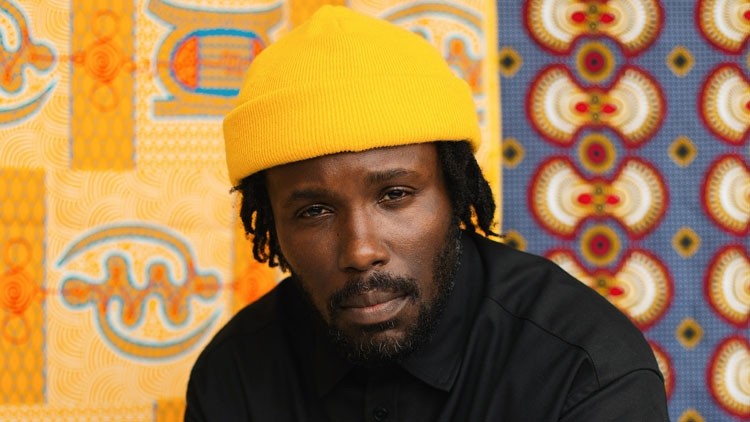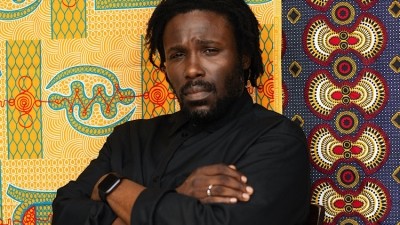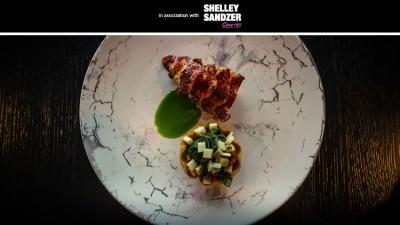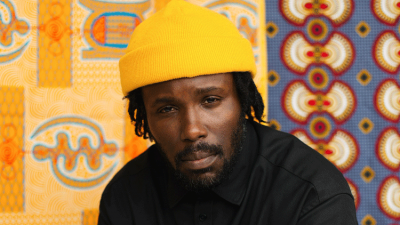Akwasi Brenya-Mensa: “African food is not a trend”

Your restaurant at the new The Africa Centre has been a bit delayed. What have you been up to?
I’ve spent the first half of the year exploring the cuisines of the Black diaspora. I’ve been all over the place: Puerto Rico, Ghana, Netherlands, Germany, Northern Ireland and Lisbon. It’s been incredible but it’s nice to now be settled in one place. Having my own restaurant will also make sourcing much easier - it can be incredibly difficult to access authentic African ingredients when you’re cooking in unfamiliar places.
Your restaurant is named after a Ghanaian plantain pancake. Why?
Tatale (pronounced ta-ta-le) has a lovely ring to it. But more importantly plantain is at the heart of the Black experience. Any restaurant in the world serving African food will have it on the menu. It’s a delicious, cheap and flexible ingredient. Plantain is a bit like the potato in that respect but there’s even more variation because of how it changes after being harvested. When it’s green it’s hard and savoury but as it ripens it gets sweeter and softer.
You self identify as Ghanaian-British. Will you serve food from other parts of Africa?
We’re billing Tatale as Pan-African. I have my issues with that term though as Africa is an enormous and very diverse place. Even in Ghana there is a lot of variation in the food depending on where you are in the country.
Presumably Tatale will feature on the menu. What else have you got planned?
Dishes from our launch menu include ackee croquettes; chichinga buttermilk fried chicken wings with dill emulsion; red snapper moqueca with onion and tarragon; and nkatenkwan (groundnut soup) with parsley and sesame. The menu will be very tight at launch but we will add to it following our soft launch period. We may look at a tasting menu at some point but I’m nervous about it as it’s important to me that Tatale is accessible for all.
Tell us about your background
I’ve been involved in food for about 10 years now. I was raised in south London and as the oldest child I helped my mum to cook Ghanaian dishes. That’s where it all started, since then I’ve always been the person that threw dinner parties and manned the barbecue. I studied in Sheffield and launched a street food burger business there. It was around the time that MEATliquor and Honest Burger were starting out and I saw a big gap in the market up there. The Juicy Kitchen (named after rapper The Notorious B.I.G.) was successful and I ended up launching a permanent restaurant that traded from 2015 to 2017. Throughout running The Juicy Kitchen I was also working in music and art and ended up leaving Sheffield to be a producer and business manager for a number of artists.
What did that involve?
A huge amount of international travel. I went nearly everywhere in the world and eating in restaurants was a huge part of that. That experience informed a number of supper club projects in London, including Mensa, Plates and Friends. I used that to explore food from all over the world. It was only when I visited Ghana as part of Year of Return (a campaign that saw people with African roots visit the country to mark 400 years since enslaved Africans arrived in the US) that I really started to think about doing a project that explored my own culture.
What happened next?
Around that time I ate at James Cochran’s Restaurant 1251 (a highly-rated restaurant in London’s Islington that explores its chef patron’s Jamaican and Scottish roots). It absolutely blew me away and I ended up doing a stage which led to paid work there. It was terrifying at first as I was totally out of my depth but I grew to love it. During that time Black Lives Matter happened.
What did that mean for you?
In some ways it was an opportunity. The media was suddenly much keener to shine a light on Black culture and support Black businesses. I don’t think it’s a coincidence that shortly after Black Lives Matter a lot of African restaurants opened, and continue to open now. But I think calling African food a ‘trend’ is problematic. A trend for who exactly? That said, it’s exciting to be working with a cuisine that’s largely not been explored by people from outside the community.
A big part of Tatale will be the championing of other people cooking food that has its roots in Africa. How will that work?
We’re hoping to get that side of things going from September. We will have two guests a month that will either collaborate with us within our existing framework or do their own pop-up. Having come from that pop-up and supper club world I know the difficulties people face especially when working with food that is not so well known. I will be offering advice and support as well as just a space. I view myself as an African futurist. I am really excited by the prospect of having a healthy, thriving and varied African culinary scene and what this will look like in twenty or thirty years’ time.

























